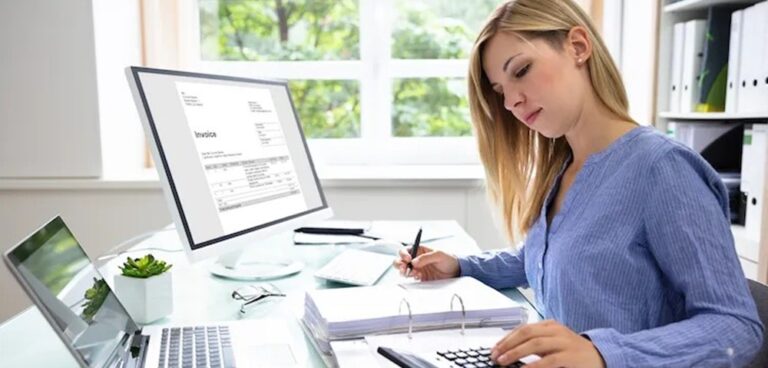The 31 July deadline for HMRC’s second payment on account often catches self-employed people off guard, especially those new to Self Assessment or juggling financial pressures. Our research shows 63% find tax returns stressful, 22% lose sleep, and over a quarter sacrifice time with friends and family to get it done. It’s a clear sign that tax time is taking a real toll.
Using an income tax estimator can help self-employed people work out what they’re likely to owe, giving them time to plan ahead. Once you have a rough figure, setting the money aside in a separate savings account can make budgeting easier, and may even earn a little interest in the meantime.
Whether you’re newly self-employed or a seasoned sole trader, now’s the time to take control. Digital tools can help track income, estimate tax, and avoid last-minute scrambles.

In this interview, Amy Hancock, Owner of Accountancy Practice, Hancock & Hastings, explains who needs to pay, when and why, and how to prepare so you can avoid penalties, protect your cash flow, and stay on top of your obligations.
- Can you explain who needs to pay this and why?
- If you are self-employed you need to complete a self-assessment every year. Rather than all the money being due at the same time they are made over two payments to spread the costs. You make one payment on account by 31 July and then the second payment by 31 January is the balancing payment as you will have completed the self-assessment and have the final amount owed to HMRC. You don’t have to make two payments if you last self-assessment tax bill was less than £1000. There are also some cases when you are taxed via a payroll but still have to complete a self-assessment as well. In these cases, you can have your tax code adjusted to pay this, as long as it is less than £3,000.
- Is this for people established in self-employment?
- As soon as you start working for yourself you should notify HMRC. The absolute latest to notify HMRC is by 5 October following the end of the tax year (i.e. after 5 April).
- When do new self-employed workers start to pay this?
- When you register with HMRC you receive a log onto your own personal tax account. As the 31 July payment on account is based on prior year self-assessment you actually do not make the 31 July payment in your first year. You make the payment by 31 January. This can catch some newly self-employed workers out in year two.
- What if people struggle to afford the payment?
- As the self-assessment is not due to be completed until nine months after the end of the tax year, you are in effect paying tax for income earned between nine months and twenty-one months previously. A lot of the time, people use the money coming in at the point of having to pay HMRC. This can impact cash flow. If you are struggling to make the payment on account, contact HMRC as soon as possible. They may allow you to have a payment plan. They will look at your entire financial position and if there are genuine hardship they will calculate a monthly repayment plan.
- What if they miss the 31 July deadline? Is there a fine/charge?
- If you do not meet the 31 July deadline and it remains unpaid for 30 days or more, then penalties may be applied. If you are struggling to make the payment, contact HMRC ASAP. Moving forward, you can use simple software to calculate estimates on what your tax bill may be and can put that money aside for when it is due to be paid to HMRC.
- What happens if an over/underpayment is made?
- As the balancing payment is based on your complete self-assessment return you hopefully don’t have and under or over payment issue. If you have overpaid, then HMRC will issue a refund. If you have made an under payment you will be expected to make a payment to clear the amount as soon as possible. Depending on how late you pay you may be subject to penalties and interest.
- How does this impact Making Tax Digital?
- MTD for Income Tax is expected to roll out for some self-employed people from April 2026. While the deadlines for payment won’t change, the new rules will require quarterly income reporting and the keeping of digital records initially for those above the £50,000 threshold. Getting used to digital record-keeping and more regular tax reviews now will make the transition easier and help you budget more accurately throughout the year.

